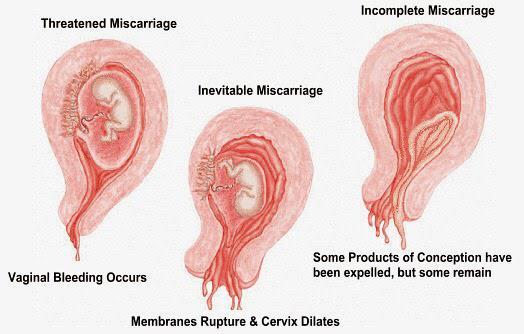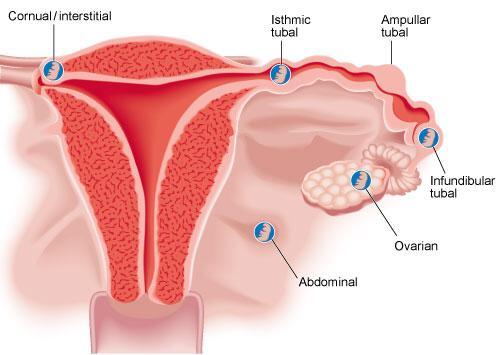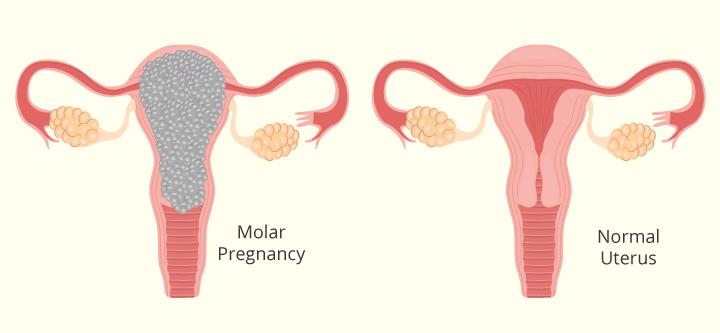
Types of miscarriage

Ectopic pregnancy

Molar pregnancy
If you have a positive pregnancy test and your pregnancy cannot be seen clearly on ultrasound scan, it is known as a pregnancy of unknown location (PUL).
There can be following 3 possibilities.
Pregnancy is in the womb but it is too small or too early to be seen. Modern pregnancy testing kits are extremely sensitive and can detect the pregnancy hormone just a few days after conception. However, a pregnancy may not be seen on ultrasound until approximately 3 weeks after conception (at least 7 weeks from your last period). When βhCG level reaches 2000 iu/ml.
That an early miscarriage has occurred. Pregnancy tests can stay positive for a week or two after a miscarriage. For further information Early miscarriage
Ectopic pregnancy that is too small to be seen. As many as one in five women with a PUL may have an ectopic pregnancy.